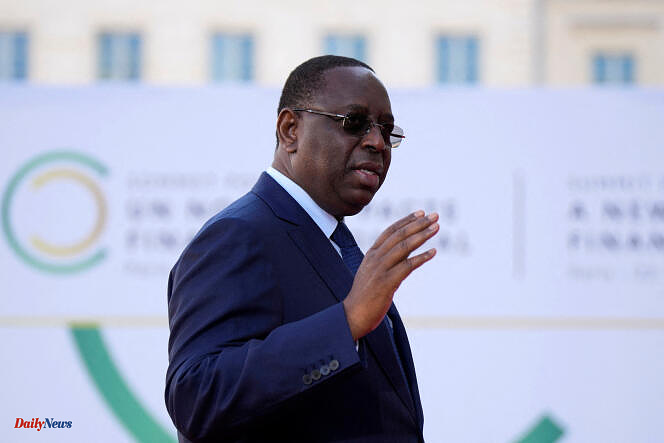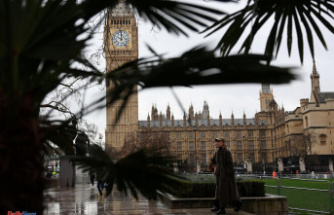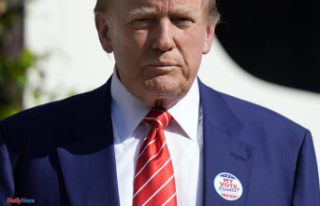As Minister of Economy and Finance, he was one of the main architects of the Emerging Senegal Plan (PSE). And he never stops, as a candidate, singing about its benefits. If there is one area in which Amadou Ba, champion of the ruling coalition for the election on Sunday March 24, follows in the footsteps of President Macky Sall, it is the major works policy launched in 2014. But to lead the country and its 18 million inhabitants on the path to “emergence” by 2035, there is still a long way to go.
In twelve years, the face of Senegal has transformed. Modern infrastructure has sprung up across the country. A regional express train (TER) now leaves from Dakar to the new town of Diamniadio. It is in this brand new administrative center, built about thirty kilometers from the capital, that the immense Abdoulaye-Wade stadium, the Abdou-Diouf international conference center and the Dakar Arena sports palace have grown.
In Dakar, electric buses (Bus Rapid Transit) will soon start rolling and highways have been built to reach the towns of Touba and Kaolack. “More than 2 million people are directly concerned, it’s concrete,” assures Djiby Diagne, deputy director of the PES operational monitoring office.
These modernization projects attracted foreign investors and allowed Senegal to achieve an average GDP growth rate of 5% under Macky Sall, compared to 3.3% during the time of Abdoulaye Wade (2000-2011). “This remains higher than the average growth in Africa, but the country is not reaching the 7% objective that was stated, due to the global macroeconomic context which has deteriorated with the increase in interest rates and the “inflation caused by Covid-19 and the war in Ukraine,” explains Arthur Minsat, head of the Africa unit of the development center of the Organization for Economic Co-operation and Development (OECD).
Universal health coverage
Although solid, the economic growth brandished by defenders of Macky Sall's record has difficulty reaching the rural world, which represents 53% of the Senegalese population. Between 2011 and 2022, the country fell fifteen ranks in the Human Development Index (HDI), to rank 170th out of 189. “These infrastructures do not create structural jobs and they do not impact on unemployment, which was still 19.5% in July 2023,” notes Meissa Babou, economist at Cheikh-Anta-Diop University in Dakar.
In addition, massive investments in infrastructure have caused Senegalese debt to skyrocket, which exceeded 14 trillion CFA francs (21 billion euros), or more than 76% of GDP, in 2023. A rate higher than convergence threshold of the West African Economic and Monetary Union (UEMOA), set at 70%.
“Senegal has just lost an important lever in the event of a crisis and can no longer play its role as a stabilizer. The International Monetary Fund and the World Bank have asked the country to stop subsidizing electricity or fuel, whose prices have increased for Senegalese consumers,” recalls Khadim Bamba Diagne, scientific director of the Economic and Monetary Research Laboratory ( Larem) from UCAD.
However, improving living conditions was “the absolute priority” of candidate Macky Sall on the eve of his election in 2012. At the time, the latter promised a “real break” with his predecessor, Abdoulaye Wade the builder , to emphasize the social.
Twelve years after he came to power, power cuts have become very rare in the city, and villages in darkness are much fewer in number. From 24% in 2012, the rural electrification rate increased to 55% nationally and 90% in urban areas thanks to the tripling of energy production due to the opening of new power plants and investment in renewable energies, even if the high cost of electricity still has an impact on the competitiveness of the private sector and on the purchasing power of consumers.
Another promise kept is the creation of a family security grant of 35,000 CFA francs (53 euros) per quarter, which benefits around 350,000 households. Universal health coverage (CMU) also offers poor people the possibility of being affiliated to a health insurance plan for a low contribution – or even free of charge in certain cases. “But all the dispensaries and hospitals are complaining, because the State does not reimburse the costs. And the amount of the family grant is derisory. The next president should put more money into it,” criticizes economist Meissa Babou.
Hydrocarbon deposits
Because purchasing power has continued to contract in recent years. Senegal has even become, under Macky Sall, the country in Africa where the cost of living is the highest, according to the collaborative data site Numbeo. With inflation reaching a rate of 9.7% in 2022, many households are struggling to make ends meet, while a third of their budget is cut by the high price of rent. The objective of building 15,000 social housing units per year was not achieved. A poor performance which can be explained, among other things, by the high costs of construction materials, most of which are imported.
A similar mechanism caused the prices of agricultural products to soar. “Our domestic production is insufficient. Result: it is expensive to import and we do not have the means to boost processing and develop agribusiness, which provides jobs,” regrets Meissa Babou. Production of rice, the staple food of the Senegalese, increased by 198%, reducing dependence on imports. The same goes for onions, whose production has more than doubled, and for potatoes, for which the figures have increased tenfold. But the country is not self-sufficient and agriculture, which 45% of Senegalese households practice, still struggles to be a sector providing formal employment.
Critics of the outgoing president point out that a gap has opened up between Dakar and other regions of the country. “The capital, where investments are concentrated, is suffocating because of the rural exodus, because Macky Sall has “dakarized” the Senegalese economy,” points out economist Khadim Bamba Diagne, who recommends a territorialization of public policies in order to attract businesses and create jobs. Because youth unemployment is a time bomb in a country where hundreds of Senegalese, even graduates, board illegal canoes to go to Europe in search of a better future.
To overcome these pitfalls, the authorities are banking on the exploitation of gas and oil, which has once again been delayed until September 2024. After the discovery of three deposits in 2014, the country aims to produce 100,000 barrels of crude oil per day and 2.5 million tonnes of gas per year. Enough to generate revenue that would have a positive impact on GDP, consumption and private investment. “The impact study we conducted shows the possibility of reducing poverty by 6.9% over the three years following the marketing of the first petroleum products. The resources will be there, everything will be a question of choice,” explains Djiby Diagne, from the PES operational monitoring office.
However, "the exploitation of oil and gas is a financial windfall that does not create many jobs", warns Arthur Minsat of the OECD: "It will be up to the government to manage budgetary allocations well so that the revenues are reinvested in the productive sectors of growth and that links are made with other sectors of the economy. » The other challenge will be to develop a network of local companies upstream and downstream of exploitation, in supply or refining for example. A delicate turning point in the Senegalese economy which will have to be skillfully negotiated by the next head of state.












